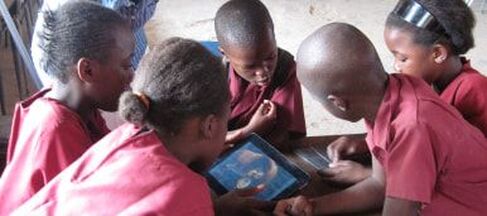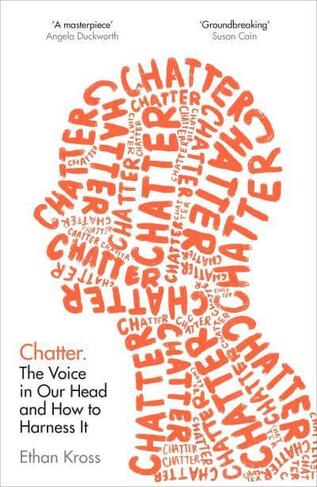
One of the aims of dialogic education is to produce students who are more dialogic or who have a more dialogic self-identity. But what exactly does that mean?
Research has shown that groups of students can be taught to talk together better and that this can improve group learning and also group performance on reasoning tests. 'Talking together better' is about being more dialogic - being able to listen, share ideas, change minds and so on. There is also evidence that teaching groups to talk together better is a good way to teach individuals to think better when they are on their own.
It is not difficult to understand how this transition from group thinking to better individual thinking works. In an experimental study I ran, one boy got a very low score on the pre-test by rushing through a multiple choice reasoning test ticking answers almost at random. After ten sessions of group work, he was given the same test again and did much better. Observing closely and talking to him it was possible to see that he had learnt to slow down and talk to himself more, asking himself the same kind of questions the group had asked when they worked on problems together, questions like 'why do you think it is that one?', 'have you checked all the other possible options?' and of course, crucially, before clicking the button to submit the answer 'do we all agree?'. In the individual condition checking 'do we all agree' translated as him asking himself 'are you sure? and again 'are you sure that you're sure?'
Recent research by Ethan Kross and colleagues shows that talking to yourself better can help with depression and other problems. The issue seems to be that people get trapped in their first person 'I' and 'me' perspectives. Guiding them to step out of this and take the perspective of an outsider, addressing themselves by their own first name and asking questions like 'have you looked at all the options' can really help.
It is interesting to think about what is happening here when someone takes both sides, both talking and also listening to themselves talk. I think that this being on both sides at once is what it means to be a more dialogic self. You do not simply talk but you hear yourself talking as if from the point of the view of the other and correct yourself in order to try to communicate better. This is identifying not only with yourself talking but also with the other listening. The 'other' here might be a specific other that you listen to closely but as we can see from the example of having a distanced conversation with yourself, 'as if one was an other', it is also more than that. In any dialogue there is not just a specific other or specific others, but the real dialogue is often more with a kind of witness position. You can’t really take on the position of the other person and hear your words as they hear them, but you still hear yourself speaking as a witness to your own words and you can tell if they make sense or not.
Dialogic self and community
Dialogic education is about empowering children by giving them opportunities to speak and to find their own voice. Yes, that is true, but it is also about creating communities of mutual trust. Students are not going to talk unless they first form a bond and trust each other. That is why we begin teaching thinking together by raising awareness of how the way we talk affects others and then by establishing shared ground rules which create an atmosphere of trust. But this 'thinking together' approach is not about forming closed friendship groups. We can also mix up the groups with others in the same class or in other classes that have also established shared thinking together ground rules and the dialogue still works. In other words children taught to think well together with others are better at forming a constructive dialogic community with strangers.
The ability to take a distanced position from yourself and hear yourself as if from the outside is very important to the ability to bond together with others in order to form a community within which to think things out together. Often this takes the form of a sense of humour, being able to laugh at your own pretensions and see the irony of things. Even when you have quite different interests, if you can see yourself as if from a distance, and the other person can see themselves as if from a distance, then bonding can occur.
Becoming more dialogic
According to the 'dialogic self' movement in psychology selves are never unitary but always made up of a community of voices. So when in education we write about a self becoming more dialogic we are really talking about a change in self-identity. We can only know ourselves because we are in relationships with others and able to see ourselves as if from their point of view. So we are really dialogic anyway but somehow it seems easy to forget that and become trapped into experiencing oneself as closed off from others in a limited self-position. Using techniques like agreeing and acting on shared ground rules for talk can help children become more dialogic by realising that they are both the inside talking outwards and the outside listening inwards.
Education as expanding dialogic space
The Russian philosopher of dialogue, Michael Bakhtin, once wrote that 'I hear voices in everything'. I agree. When spaceships explore parts of the solar system that have not been seen before I think that we are expanding collective dialogic space. Things that could not be talked about before because we did not know about them have now entered into the dialogue and can be referred to and discussed. Learning is not a piling up of facts but an expansion of dialogic space, each new voice adding a new perspective from which to experience and understand the world. The same 'expansion of dialogic space' process is true for each individual student drawn through a process of education to discover new vistas. Children might start their educational journey only talking to people in their immediate family and end up talking to Shakespeare, Confucius and NASA scientists.
It might sometimes seem that students are inducted into a narrow culture and led only to participate only in closed communities. But a certain unbounded openness to the possibility of learning new things is part of the ideal of education.
Ethan Kross, in his book 'Chatter: the voices in our head' argues that promoting self-distanced conversations is a way to educate for wisdom. Wisdom, he claims, citing a considerable research literature:
involves using the mind to reason constructively about a particular set of problems: those involving uncertainty. Wise forms of reasoning relate to seeing the "big picture" in several senses: recognising the limits of one's knowledge, becoming aware of the varied contexts of life and how they may unfold over time, acknowledging other people's viewpoints, and reconciling opposing perspectives. (p57)
In other words wisdom can be learnt by talking to people to take on board the different ways in which things can be seen, understanding one's own inevitable ignorance and, most importantly, holding distanced conversations with oneself to see things as if from the outside to get a sense of perspective. It sounds from this description as if Kross thinks that perspectives can all be reconciled but it might also be that wisdom sometimes consists, as Bakhtin suggests, in a profound belly laugh.
The transmission of knowledge is important in education. Ultimately this means inducting student into participation in often quite focussed communities of practice in which concepts are discussed, developed and applied; the community exploring random numbers in mathematics for example, the community of hairdressers, boiler engineers, heart surgeons or nature poets. In addition to teaching knowledge by equipping students with all that they need to be able to join such specialised practices and dialogues, education also needs to teach the bigger picture by drawing students into dialogue with outside voices. This is about expanding the dialogue so that they can take up their place not only within a specialised community but also within the cosmos.
The importance of developing this kind of expanded dialogic self, a self in dialogue with the outside, is brought out well by a quote from Barack Obama which Kross includes in his book:
The biggest challenge, I think, is always maintaining your moral compass. Those are the conversations I'm having internally. I'm measuring my actions against that inner voice that for me at least is audible, is active, it tells me where I think I'm on track and where I think I'm off track
A dialogic self is a self that sees both sides, that can listen as well as talk and that finds it easy to form a community with others. Ultimately being dialogic is not just about being in dialogue with this or that other person or participating constructively within this or that specific community but it is also about seeing oneself from the outside and so, in a sense, being in dialogue with the cosmos.
Producing more dialogic selves would be a good idea. There is evidence from research on dialogic education that this is surprisingly doable.
References and further reading
https://www.psychologytoday.com/us/blog/platform-success/202108/how-have-better-conversations-yourself
Kross, E. (2021). Chatter: The Voice in Our Head and How to Harness It. Random House.
https://www.rupertwegerif.name/blog/what-are-types-of-talk
https://www.rupertwegerif.name/blog/defining-dialogic-education
https://www.rupertwegerif.name/blog/dialogic-space-why-we-need-it
Wegerif, R., Mercer, N., & Dawes, L. (1999). From social interaction to individual reasoning: An empirical investigation of a possible socio-cultural model of cognitive development. Learning and instruction, 9(6), 493-516.


 RSS Feed
RSS Feed